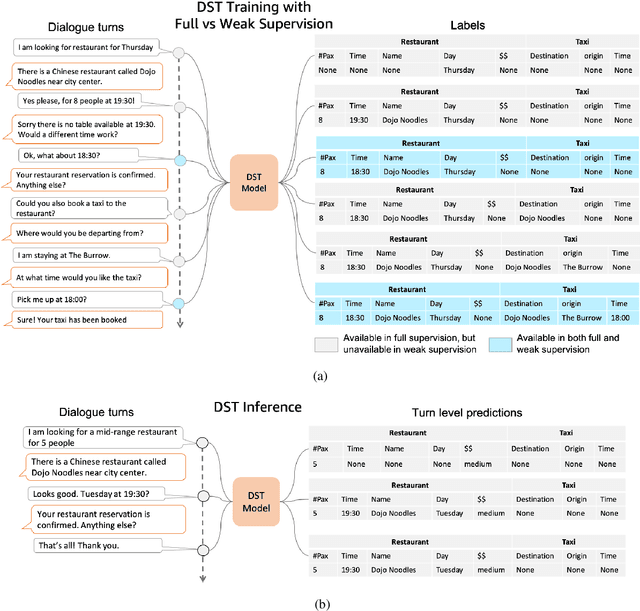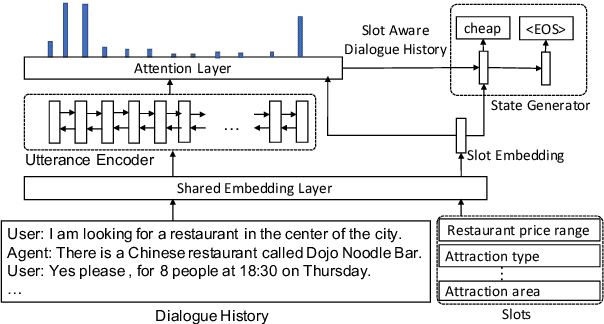Attention Guided Dialogue State Tracking with Sparse Supervision
Paper and Code
Jan 28, 2021



Existing approaches to Dialogue State Tracking (DST) rely on turn level dialogue state annotations, which are expensive to acquire in large scale. In call centers, for tasks like managing bookings or subscriptions, the user goal can be associated with actions (e.g.~API calls) issued by customer service agents. These action logs are available in large volumes and can be utilized for learning dialogue states. However, unlike turn-level annotations, such logged actions are only available sparsely across the dialogue, providing only a form of weak supervision for DST models. To efficiently learn DST with sparse labels, we extend a state-of-the-art encoder-decoder model. The model learns a slot-aware representation of dialogue history, which focuses on relevant turns to guide the decoder. We present results on two public multi-domain DST datasets (MultiWOZ and Schema Guided Dialogue) in both settings i.e. training with turn-level and with sparse supervision. The proposed approach improves over baseline in both settings. More importantly, our model trained with sparse supervision is competitive in performance to fully supervised baselines, while being more data and cost efficient.
 Add to Chrome
Add to Chrome Add to Firefox
Add to Firefox Add to Edge
Add to Edge